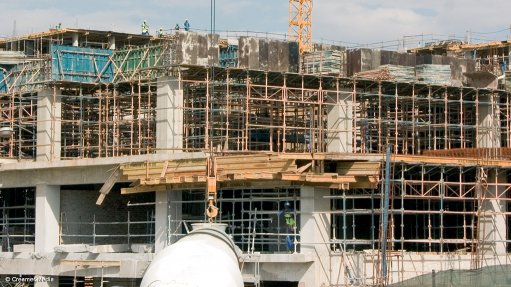
Photo by: Duane Daws
Investment in African megaprojects increased by 46% to $326-billion in 2014, mainly as a result of higher investment in transport, energy and power infrastructure, advisory firm Deloitte’s third yearly African Construction Trends report has revealed.
The report monitors progress on capital-intensive infrastructure on the continent.
Although the number of projects that qualified for inclusion in the 2014 report decreased to 257, from 322 the year before, the total value of projects under construction increased from $222.77-billion in 2013.
According to the report, the public sector was responsible for the development of most of the listed projects – 143 – followed by the private sector with 88 projects and public–private partnerships with 26 projects.
Energy and power made up 37% of the number of megaprojects in Africa last year, followed by transport at 34%, mining at 9%, real estate at 6%, water at 5% and oil and gas at 4%.
Mixed-use facilities made up 2% and healthcare contributed 1%.
Meanwhile, Southern Africa had led construction activity on the continent, with projects valued at $144.89-billion, or about 44.5% of the total value of megaprojects on the continent last year.
West Africa attracted $74.84-billion in projects, or 23% of the total projects on the continent, while Central Africa experienced a 117% increase in the value of construction projects to $33.21-billion.
North Africa saw the value of construction projects increase by nearly 36% to $9.12-billion but East Africa experienced a 10% decrease in the value of projects to $60.67-billion in 2014.
The report highlighted that Africa’s infrastructural transformation was being driven by increased output in the natural resources sector, which supported rising fiscal expenditure on infrastructure projects to facilitate rising international trade with the continent.
Additionally, rapidly growing urbanisation and rising domestic demand in Africa had created a significant amount of foreign direct investment in the continent’s biggest and most dynamic economies.